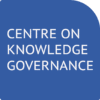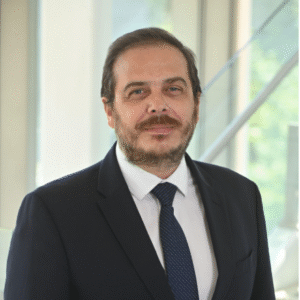Sean Flynn, Luca Schirru, Talia Deady
In a previous blog post, we analyzed the statements of regional groups and delegations during the 2025 WIPO General Assembly review of the Standing Committee on Copyright and Related Rights (SCCR). Here we share fuller excerpts of those statements, which may be useful to researchers and others closely following the Committee’s work.
Pakistan – APG
“We reaffirm our support for the conclusion of a fair and inclusive broadcasting treaty. The group recognizes the need to narrow gaps and build consensus in line with the mandate of the Committee. We urge continued constructive engagement by all Delegations during upcoming SCCR sessions without prejudging whether the Committee is in a position to recommend the convening of a Diplomatic Conference.
The group reiterates its longstanding support for meaningful work on limitations and exceptions, particularly for libraries, archives, museums, educational and research institutions and persons with other disabilities. Ensuring the preservation of an access to knowledge remains a key priority for this group. The APG is of the view that the limitations and exceptions agenda is essential to enabling inclusive access to knowledge, education and culture, especially in developing countries. We welcome the consensus within the Committee to continue discussions on this important item and support endeavors to advance the implementation of the work program.
We reiterate the increasing relevance of discussions on copyright in the digital environment, especially the evolving implications of generative artificial intelligence on copyright. The group supports the continuation of information sessions and discussions in this regard. The APG also notes the interest expressed to discuss other topics at SCCR. While we remain open to dialogue, there is a need to ensure that the Committee’s workload is balanced and aligned with the needs of all Member States.”
Japan – Group B
“Group B would like to emphasize the importance of working towards progress in the discussions on the draft Treaty on the protection of broadcasting organizations with a view to addressing the legal use of program carrying signals. In order to achieve a meaningful agreement within this Committee, sufficient time should continue to be allocated to this standing agenda item.
For the Agenda Item limitations and exceptions, it would be reiterated that the work under this Committee should follow the scope and parameters as identified in the work program adopted at SCCR 43. We are committed to engaging in further constructive discussions on this issue.
Finally, Group B welcomes the informative exchanges held during the information session on generative AI as it relates to copyright. Given the rapidly evolving AI technology landscape, we consider balanced discussions among Member States and stakeholders covering both opportunities and challenges to be highly valuable. Accordingly, we look forward to the follow-up session at SCCR 47.”
China
“This Delegation supports the SCCR in continuing discussing protection of broadcasting organizations, limitations and exceptions, and as well as other agenda items.
[We support] reaching an agreement on substantive issues in terms of protection of broadcasting organizations to lay a foundation for the convening of a Diplomatic Conference. Relevant study should be carried out in depth to promote discussions on exceptions and limitations.
On other agenda items, in particular Copyright in the digital environment including generative AI in relation to copyright, this Delegation will enhance communication with WIPO and other related parties.”
Estonia – CEBS
“We would like to reiterate our firm commitment to advancing towards the conclusion of a meaningful Treaty for the Protection of Broadcasting organizations. We support a Treaty that adequately reflects the technological realities of the 21st century and ensures appropriate and effective protection against signal piracy. The CEBS group has long supported the convening of a Diplomatic Conference and considers that we are now approaching a point of readiness for final negotiations. We remain committed to a future-oriented Treaty that meets the current needs of broadcasting organizations and accommodates the challenges posed by the digital environment and rapid technological developments. The CEBS group looks forward to considering the Chair’s revised text at the upcoming SCCR session. We hope this will pave the way for a robust and balanced legal instrument that also provides equal protection for transmissions over computer networks and supports the global fight against signal piracy.
With regard to the Committee’s work on limitations and exceptions, the CEBS group continues to recognize the vital role played by libraries, archives and museums in the dissemination of knowledge, information and culture as well as in the preservation of our shared history. We also attach high importance to the work of educational and research institutions and to ensuring access to copyright protected works for persons with disabilities. As we have consistently stated, our group does not support pursuing an internationally legally binding instrument in this area. Instead we are open to exploring possible nonbinding instruments and best practice tools that can help Member States implement effective and context sensitive exceptions and limitations at the national level. We look forward to reviewing the document to be prepared by the Chair and Vice Chair and to continuing our constructive engagement in the discussions at the upcoming SCCR session.
The CEBS group welcomes the continued exchange of information on the intersection of copyright and artificial intelligence. We appreciated the information session on generative AI held at the last session which provided valuable insights into the challenges and opportunities that AI poses to the copyright system. We are pleased that the follow-up information session will take place at SCCR 47.
With regard to other matters on the Committee’s agenda, the CEBS group would like to reiterate its view that should the SCCR agenda be expanded to include additional items in the future, the authors’ resale right would be a valuable and relevant topic to be considered as a standing item. We are also carefully analyzing the proposals put forward under the agenda item copyright in the digital environment and remain committed to engaging constructively in these discussions.”
Ecuador – GRULAC
“GRULAC reiterates the importance of the work of this Committee regarding work in trying to reach a consensus on extremely important issues for Member States in our region with regard to copyright and related rights, in particular those designed to improve the education and protection of cultural heritage and educational purposes, particularly for those with disabilities.
We have been engaging constructively and we welcome the decision to include two sessions of the SCCR on the calendar. We believe that that practice should continue so that our efforts contribute to a broad, representative and productive discussion.
GRULAC is particularly interested in discussions connected with copyright in the digital environment and we believe that is vital to continue to discuss that issue in order to find common solutions to the benefit of our societies and rights holders.”
Namibia – African Group
“The African Group is of the position that the report should clearly reflect the SCCR affirmation that its work is guided by the 2012 General Assembly mandate and the work program adopted in the SCCR 43.
The African Group attaches great importance to the limitations and exceptions. In the previous two sessions of the Committee in 2023 and 2024, and at the last General Assembly, the African Group raised concerns on the slow pace in meeting the 2012 General Assembly mandate to work towards an appropriate international legal instrument on limitations and exceptions for libraries, archives, museum, education and research.vHence the group calls for the beginning of text -based negotiations of the proposed draft instrument on this very important subject to effectively deliver on this subject matter as soon as possible.
The African Group values balance in negotiations in the SCCR. It is therefore committed to having the discussions on the broadcasting treaty and limitations and exceptions move together.
The African Group continues to express its strong support for the proposal submitted by the Delegation of Côte d ‘Ivoire calling for the commissioning of a study on the rights of audiovisual authors and the mechanism by which they are compensated for the exploitation of their works. A suggestion to extend the scope to audiovisual performance may be considered at the later stage. We fully endorse the immediate focus on authors and support the recommendation to situate this study within the SCCR whose mandate directly aligns with the objectives of this initiative.”
European Union
“We remain committed and support progressing soon towards concluding a worthwhile Treaty for the Protection of broadcasting organizations which responds to the technological realities of the 21st century. We stand ready to engage in further discussions on the text in order to progress towards convening a Diplomatic Conference and concluding a meaningful Treaty that would ensure appropriate and effective protection to the broadcasting organizations in their fight against piracy of their signals at international level.
The EU and its Member States stand ready to continue to engage constructively in the discussions on exceptions and limitations, in particular on the basis of the work program agreed at SCCR 43. We strongly believe that libraries, archives and museums play a crucial role in the dissemination of knowledge, information and culture along with the preservation of our history. We also attach importance to the support of educational and research institutions and people with disabilities. As consistently expressed in the past, we cannot support work towards legally binding instrument at the international level. We believe that our focus should rather be on WIPO support and capacity building for WIPO members and improving their national legislation within the existing international copyright framework, including reflection on possible nonbinding instruments. We look forward to the document to be prepared by the Chair and the Vice Chair.
Considering the challenges raised by technological developments, we welcome pursuing the exchange of information on copyright and artificial intelligence.
In terms of other agenda items, we take note of document SCCR /43/7 which proposes to include copyright in the digital environment in the standing agenda of the SCCR. We consider that achieving tangible progress on the two current standing agenda items, so the draft broadcasting treaty and exceptions and limitations should be the priority for this Committee before adding any new permanent agenda item. Should the SCCR agenda be expanded to cover additional items in the future, we would recommend, as already indicated in the past, including the topic of the authors resale right on the permanent agenda of the SCCR. At the same time we are ready to continue exchanges of information on issues related to the draft work plan for copyright in the digital environment.”
Republic of Korea
“The Delegation of the Republic of Korea assures you of its continuous engagement and commitment to constructively participate in discussion concerning important agenda items of the Committee, including broadcasting organizations, resale rights and so forth.
…
Above all, this Delegation observed that the SCCR has become the most authoritative agenda setting forum to host international discussions on copyright issues concerning generative AI, including but not limited to fair compensation for the use of copyrighted works for the purpose of AI training and copyrightability of the AI outputs.”
Columbia
“Colombia wishes to invite everybody to join forces to reach a consensus on a draft broadcasting organizations treaty because this is a key issue. We encourage the SCCR to continue to working on the issue of copyright in the digital environment so that it becomes a standing item on the agenda of the Committee.”
Iran
“Regarding the broadcasting treaty, we look forward to continue discussion on the updated text in the 47th session of this Committee. We emphasize the importance of this revised text in helping to bridge existing differences and moving the Committee closer to fulfilling the 2007 General Assembly mandate. We remain committed to development of a fair and balanced international instrument with a scope limited to the traditional broadcasting organizations and based on a signal-based approach.
My Delegation firmly believes limitations and exceptions for libraries, archives, museums, educational and research institutes as well as persons with other disabilities are of critical importance to individual empowerment and the collective development of societies. We look forward to further discussion on this matter, in particular on the document to be prepared by the Chair and Vice Chairs for consideration at the next session of this Committee.
We wish to highlight the importance of continuing to share and learn from the best practices under other items on the Committee’s agenda.
Numerous Member States of this [sic] body highlight their commitment to developing a fair and balanced instrument of protecting broadcasting organizations and the importance of developing an instrument on exceptions and limitations, inter alia for reinforcing the role of libraries in facilitating access to knowledge and cultural preservation.”
Russian Federation
“On the whole, we appreciate the results of the work of the Committee and we support continuing its work on the matters of limitations and exceptions to copyright, the use of copyright in the digital environment, and also protecting theater directors’ rights.
… We hope that this active work will continue on this matter and that the Secretariat will hold during the intercessional period informal consultations with interested industry representatives, experts and interested Member States with a view to developing a questionnaire as regards the modalities for protecting theater directors’ rights in different jurisdictions.
We would also like to thank the Secretariat for organizing an informal meeting on the topic copyright and generative AI during the 46th session of the Committee. We welcome also the decision to hold a similar session during the next session of the Committee.
We think it is important to step up work on the draft WIPO Treaty on broadcasting organizations more substantively with a view to finalizing the text as swiftly as possible. And we would underscore that this Treaty should be geared towards forming the main areas and principles for the protection of the rights of broadcasting organizations.
We note the need to adapt the work of the Committee to the development of frontier information technologies in the context of copyright and related rights and also to adapt the work to the interests and needs of Member States.”
Mexico
“With regard to negotiations on a broadcasting organizations treaty, we believe it is important to move towards a legally binding treaty focusing on signal protection. That technical and focused approach is best placed to help seek broad consensus, protect the balance of the system and offer a tangible response to a problem identified many years ago. Mexico underscores the importance of the fact that the Committee should decisively play a role in the analysis of copyright in the digital environment. Emerging technologies including artificial intelligence are transforming very swiftly the dynamics in which content is produced, distributed and consumed. Those transformations have a direct impact on those who create, interpret and share culture. It is our responsibility to ensure that the legal frameworks evolve as well instead of it happening behind its back. Mexico reiterates its support for the adoption of the work plan proposed by GRULAC. That plan offers a clear roadmap for structuring the debate, gathering the relevant information and advancing towards the right solutions.”
United States
“The U.S. begins by reiterating the critical importance of WIPO’s work, particularly with respect to normative work, including the SCCR remaining a member state driven process in accordance with whatever timelines this may require.
With regard to protection of broadcasting organizations in the digital age, the United States continues to support updating such protection under the terms of the 2006-2007 WIPO General Assembly mandate which calls for a signal based approach to provide protection for the activities of broadcasting organizations in the traditional sense. However, the text of the current draft in our view exceeds the General Assembly mandate with its inclusion of articles that provide a new right of fixation and that protect signals used in making available to the public stored programs. The United States believes that to remain consistent with the GA mandate, the scope of rights to be granted by the proposed instrument should be limited to providing traditional broadcasting organizations with a single exclusive right to authorize simultaneous retransmissions to the public of their linear broadcast signals. We feel that this single right approach is the most prudent manner to address the core problem of signal piracy while still being able to achieve consensus at the international level. Of course, each jurisdiction would remain free to provide additional more specific rights in their national laws as they see fit. Significant questions and concerns were raised at the 46th session of the SCCR by several regional groups and Member States, including the United States, regarding the proposed instrument’s objectives, rights to be granted, and scope of protection. The lack of consensus on these fundamental issues makes clear to us that much more work remains on improving and focusing the text of the instrument to make it acceptable to all Member States. The United States continues to support that work in order to update the international legal protection for traditional broadcasting organizations against signal theft in the digital age.
Regarding exceptions and limitations, the United States believes that the current international framework for copyright exceptions and limitations provides sufficient flexibility consistent with well established international standards for countries to adopt any new or revised exceptions and limitations to address their own social, cultural and economic policies. Accordingly, the United States believes that an informed discussion of exceptions and limitations within the SCCR can be useful to Member States who are interested in tailoring their national exceptions and limitations to their domestic needs and circumstances. For example, such an informed discussion could facilitate the development of high level principles and objectives or best practices to assist Member States craft and improve national copyright exceptions and limitations for libraries, archives, museums and educational and research institutions as well as exceptions for persons with disabilities.”
Japan
“We consider the protection of broadcasting organizations to be the most important and high priority agenda item. … However, the draft broadcasting organization treaty still contains unclear points and there are different views among Member States on the fundamental issues. In order to reach an agreement, we believe that a flexible approach is needed allowing each Member State to join the treaty while taking into account international and regional circumstances. We also believe that further discussions are needed to move forward to the next step.
It would be beneficial to exchange information on AI and copyright between various Member States so that we can follow policy trends, litigation and other experiences in different countries.”
India
“India remains committed to work towards a balanced treaty that protects the right of broadcasters, provides Member States with flexibility to implement obligations through adequate and legal effective legal means, and supports the development needs and public interests concerns of the Member States.
We commend the Committee’s continued work on limitations and exceptions as mandated by 2012 General Assembly and support the preparation of a document for discussion at SCCR 47 emphasizing the need to build on past efforts without duplication.
India appreciates the WIPO toolkit on artists’ resale rights prepared by Professor Sam Rickertson. The toolkit offers valuable insight into the practical administration of ARR at the national level. We support including this topic on the SCCR agenda to advance discussion on fair remuneration for artists globally, especially for indigenous artists, and to promote greater equity in the corporate system.
We reiterate the importance of protecting the theater director’s right and propose a comparative study of the best practices across the jurisdiction to identify most suitable model for their protection.”
Morocco
“Want to focus on the resale rights of artists because we want to recognize artists and the economic value of their resale rights.”
Malawi
“We welcome the progress made on the draft WIPO broadcasting organizations treaty as well as on the work concerning limitations and exceptions.
Malawi reaffirms its strong support for Cote D’Ivoire’s proposal to commission a study on audiovisual authors’ rights and the mechanisms for remunerating the exploitation of their works.
We urge Member States to maintain momentum in the discussions on artists’ rights and to elevate this issue to a substantive item on the SCCR agenda to advance fair remuneration for artists globally.”
Kenya
“We express support for the conclusion of our broadcasting Treaty that is fair and balanced and takes into account the interests and concerns of all Member States.
We equally support the conclusion of an appropriate international instrument on limitations and exceptions in line with the General Assembly mandate of 2012 and the work program adopted in SCCR 43. We remain concerned over the slow progress in advancing the work on broadcasting as well as on limitations and exceptions. We look forward to working with other Delegations to accelerate progress on the two agenda items and ensuring that the two items move in tandem.
We also express strong support for the proposal by Cote D’Ivoire.”
Brazil
“We reiterate our commitment to a constructive agenda on SCCR with work focusing on copyright that protects the rights of artists and creators in the current technological context. We reiterate the proposal to keep two annual sessions of the SCCR strengthening the discussions on copyright in the digital environment. The rapid technological development that we face means that we need to update our normative and conceptual frameworks in an inclusive and participatory way. We strongly support the proposed plan of work on the digital environment proposed by GRULAC and we believe that that should be a standing item on the agenda of the Committee.
We also reiterate our support for the agenda on limitations and exceptions which are key for the balance of the system, particularly in educational scientific institutions and guaranteeing access, particularly in developing countries.”
Cote d’Ivoire
“We would like to recall that in 2023 we submitted to the SCCR a draft proposal on audiovisual copyright and remuneration, which should highlight existing legal protection models for audiovisual authors across the world and their remuneration. This initiative was a follow-up of work in this area and also the fact that there is a lack of reliable data and that work needs to be carried out to strengthen their status. The draft proposes to document the national realities and to identify legal institutional and economic obstacles and to propose concrete areas of work for the better protection and promotion of these key actors in our cultural industry. Cote d’Ivoire would like to renew its appeal to all Member States to actively support this proposal, which is fully in line with the goals of the SCCR and the global trend to strengthen copyright.”
Namibia
“Our Delegation notes the progress made by the Committee on Limitations and exceptions for over 20 years. The progress made over the years warrants the transition of the discussions to text-based negotiations aimed at concluding [an] international legal instrument on limitations and exceptions to copyright and limitations and exceptions in the context of libraries and archives, educational and research institutions, as well as persons with other disabilities. This will give effect to the decision this assembly made already.”
Saudi Arabia
“Mr. Chair, we support holding two sessions in 2025 regarding protecting broadcasting organizations because this will bridge gaps among Member States and will pave the way in order to hold a Diplomatic Conference on this matter.
We stress that it is important to balance the right of the public and respect also limitations and exceptions. We need to focus on protecting signals against piracy without expanding that scope too much.
On limitations and exceptions, it is crucially important to reach a legally binding instrument striking a balance between the rights of right-holders and the needs of beneficiaries. This is very important in developing states and LDCs in order to ensure access to knowledge, innovation and creativity.”
South Africa
“Given the issues of the current SCCR agenda, it is imperative for the SCCR to continue holding two sessions a year permanently to constructively negotiate core issues. Currently the SCCR agenda is overburdened and therefore the SCCR is unable to make the necessary progress on other core and emerging issues. South Africa would like to note a general concern regarding the progress of the agenda items of the SCCR and the lack of political willpower to address and finalize these longstanding items, such as the conclusion of a Treaty on broadcasting and nominative work with limitations and exceptions.
We appreciate the SCCR’s engagement with limitations and exceptions to copyright, particularly for libraries and archives, educational and research institutions and persons with disabilities. We encourage the SCCR to expedite its work on these issues and we reaffirm our commitment to actively contribute to the discussions at future sessions of the SCCR. South Africa stresses the importance of copyright limitations and limitations as an integral part of the international copyright system for as long as it has existed. Limitations and exceptions play an important role in balancing the rights of creators of work and the rights of the public to access the works. The WIPO General Assembly acknowledged in 2012 the desirability for norm setting work on limitations and exceptions with a special focus on limitations and exceptions for educational, teaching and research institutions and persons with other disabilities.
Besides the Marrakesh Treaty, discussions at the SCCR have not yet yielded satisfactory results on key issues such as exceptions for libraries, archives and museums as well as for education and research institutions and people with other disabilities. South Africa supports the draft proposal by the African Group for the implementation of the web program on exceptions and limitations that was adopted at the forty-third session of the WIPO SCCR. Instruction should be given to the Committee to commence norm setting work.
South Africa supports artists’ resale rights as part of the substantive agenda of the SCCR. “
Algeria
“Our Delegation reaffirms its support for a balanced and inclusive approach to copyright and related rights, ensuring that the interests of all stakeholders, creators, users and broader public are duly taken into account.
This includes the area of broadcasting, where we recognize the importance of safeguarding public interests alongside protecting rights holders as well as ensuring appropriate limitation and exceptions.
In this regard, Algeria strongly reiterates its support to the implementation of the work program on limitation and exceptions adopted at the SCCR 43. The effective implementation of this work program which aligns with the mandate set by the WIPO General Assembly is essential to ensuring access to knowledge, education and research particularly in the developing countries.
Therefore, our Delegation highlights the importance of advancing work on limitation and exceptions and calls for the beginning of text-based negotiations on this crucial issue in order to achieve tangible outcomes as soon as possible.
Finally, Chair, we support the proposal presented by Cote d’Ivoire.”
Cameroon
“It is important to note that equal attention should be paid to the items on the Agenda including the negotiations on the adoption of a broadcasting instrument as well as an instrument on L&Es. In order to do so, it’s important that, as other Delegations have said, the Committee must work in order to promote synergy in this area with a view to completing its mandate with impartiality. This means that we must avoid any limiting conditions on negotiations and without prejudice to the text that would be adopted in accordance with the mandate. We call for the commencement of text -based negotiations on a draft instrument on limitations and exceptions for education, research, archives and museums to gradually move towards its adoption simultaneously with the broadcasting Treaty. Hence, we expect this to happen at the next sessions and invite all parties to positively engage in such a path.
We take note of the constructive interactions held at the last sessions regarding the broadcasting Treaty. We look forward to engaging in further discussions on an improved text that includes variable comments made by our group and other parties.”
Botswana
“Mr. Chairman, Botswana expresses concern on the slow progress of work of the SCCR particularly on limitations and exceptions and the protection of broadcasting organizations.
Botswana hopes that in subsequent sessions the Committee will find a common ground and agree on how to progress these longstanding agenda items.”
French
“The French Delegation would like to encourage the Committee to speed up in a constructive manner the work on the draft Treaty for the protection of broadcasting organizations, especially based on the new draft Treaty text which will be presented at the next Committee.
We also encourage them to continue their conversations on L&Es. We would like to reiterate our interest in including resale royalty rights in the agenda for the Committee and we would also like for the analysis of copyright in the environment to be maintained in the agenda of SCCR 47.”
Eswatini
“We commend the Committee’s sustained focus on limitations and exceptions, especially for libraries, archives, educational and research institutions and persons with disabilities. These are essential areas where a balanced international framework can promote access. to knowledge particularly for developing countries.”
We also acknowledge the evolving discussions around copyright. in the digital environment. The proposal to make this standing agenda item is timely and reflects the growing agency to address copyright challenges in the fast changing world. fast changing digital landscape.”
Kazakhstan
“We support the recommendations, especially the continuation of the work on the Committee on such key issues as protection of rights of broadcasting organizations, LEs as well for libraries and research organizations, the use of copyright in the digital environment, copyright and AI generative technology as well as resale rights and the protection of directors and the theatrical theater sector.”
Panama
“The Marrakesh treaty is a key tool to provide for the needs of people with visual disabilities to have access to information, knowledge, and culture. Panama encourages WIPO to continue to keep two annual meetings of the Committee on the agenda in order to have necessary time to discuss all of the issues on the agenda.”
Samoa
“Samoa wishes to register its alignment with the APG regarding this agenda. Nevertheless, we believe that these should be weighed and balanced against the work currently under the IGC for the protection of traditional knowledge and traditional cultural expressions. to ensure that such developments do not further misappropriation and exploitation of TK and TCEs. It is from that tangent that Samoa will continue to engage and advance its positions regarding the current negotiations.”
Observers
KEI
“Broadcasters could have had an agreement two decades ago if they were willing to limit the agreement to signal piracy and the kind of piracy and anti-piracy problems that are often referred to in these interventions. Instead, there has been this battle about whether or not they have post-fixation rights on information that [broadcasters] don’t hold the copyright to and that’s really what’s been the reason why this thing hasn’t really moved. We really want to make the point that broadcasters are not artists and they are not performers. Today, there are also services like YouTube, Facebook, Twitch, Spotify, Netflix and Amazon Prime. We see there are three ways to bring the negotiations here to an end to make room for other topics of interest to people, like AI.
First, to make it clear that the agreement does not have an impact on post fixation rights. It could be clear. It is not clear [currently]. And the reason it is not clear is because there is a broadcaster lobby that really wants that. But if that’s resolved, I think you could move forward.
Secondly, you could limit its reach to sports or other live events.
That seems to be really the most important area where you talk about piracy today. It is really becoming about sports and other live events. You could also take it off the agenda for lack of consensus. I think that’s also a possibility you have to talk about seriously. On limitations and exceptions, a different topic, it’s possible there could be some consensus reached on something like archiving and preservation where the differences among countries are not particularly great and where the public interest in having sufficient preservation of culture is really important. For other areas, model laws may seem more promising. There are a lot of advantages to model laws. They can can accommodate more differences, as you can give options. There’s a lot more flexibility, I think, in model laws. And if you get them wrong you can change them.
Things are moving pretty fast in technology and I think there are some advantages in that. But SCCR should review the modalities used in past and other model laws including the role of Member States in their negotiation. It’s kind of an earlier forgotten history of WIPO when they used to do this quite a bit. We find it interesting, but [it is] probably something very few Delegates are aware of. I think the Secretariat could make an excellent presentation on this. We think WIPO could reach consensus on a treaty on artist resale rights if it is limited to physical works of art. I think that would be a great instrument for a UN body.
The work in AI is the most important issue facing IP offices. Here it will be useful to review recent developments in the EU in the area of health with the new regulation on the European health data spaces which is really innovative in our opinion. And to hold information sessions on the role of metadata for copyrighted works and identifying rights and holders rights holders and managing remuneration.”1
Global Expert Network on Copyright User Rights (Sean Flynn)
“….
I speak on behalf of the User Rights Network of copyright academics around the World.
I found Ms Forbin’s opening statement to be quite striking.
The Broadcast and the Limitations and Exceptions topics can indeed be traced back over a quarter of a century. Both date back to the 1996 Internet Treaties where the broadcast issue was removed and an agreed statement adopted calling for adaptation of exceptions for the digital environment. Both issues were on the initial agenda of the SCCR that was created by the GA in 1998.
Of course the increased participation in the Committee and the lack of speedy work is not really a paradox but a reflection of the importance and contested nature of some of the issues.
But as an outside observer, I would say that conclusions of both agenda items are fairly clear and achievable.
On L&E, the GA Decision of 2012 statement sets the goal. Which is not only thematic events and tool kits as some observers here called for. The 2012 General Assembly mandated “work towards an appropriate international legal instrument or instruments” on limitations and exceptions. (WO/GA/41/14). Instruments. Not just events and guides.
We commend the SCCR’s adoption of the Work Program in SCCR 43 to progress toward the mandate. That Work Program contains innovative modalities of the kind Ms Forbin may have been referring to, including intercessional work.
Importantly, the Work Program does not prejudge the nature of the instrument. Today, I heard the EU and the US agree to work on at least soft law instruments on L&Es. I have heard all education and research stakeholders state that such soft laws would be helpful. So that seems to be a landing point.
On Broadcast, there would be little opposition to the text if the fixation and post fixation rights were removed. But there will be continued resistance as long as those provisions are in the text.
The Broadcast Treaty should also ensure that broadcast rights cannot be more extensive than copyright protection on the same materials. This is not yet the case with the current draft. But this is a pretty easy technical fix.
I join the comment form KEI in thinking the possible landing zones on these issues are fairly clear. There may indeed be a need for innovative modalities to reach them. The SCCR agenda right now contains a whole host of issues. There must be 10 or 12 different agenda items that are talked about every time. So perhaps there should be some innovative modalities to concentrate the discussion, special sessions devoted to particular topics, for instance.
We are of course happy to work with delegations on these and other important issues.”
DDG Forbin
“I think that the contributions made by Member States and indeed also by observers converge more or less in the same direction. Of course, as I’ve said myself, there’s always been interest expressed repeatedly by many, if not most of you, to make headway with the work to be done in the SCCR. The question, of course, the tricky one is how to do that.
We have had what I described earlier as a rather frustrating period when we don’t seem to be able to do anything except either go around in circles or go backwards on some issues. We certainly do not make any headway in the right direction.
The essential thing is that we be willing to take perhaps a little bit of risk in order to actually advance. When I talk about risk, I am not not talking about risks to what we’ve agreed to in the past. I talk about the risk of moving forward however difficult that may appear to be. We have cutting edge technology coming in so fast and, of course, artificial intelligence. If we are going to deal with all these issues, the international community is going to have to grab the bull by the horns, if I can put it that way. And really tackle these issues head on.
We are desperate really to help you do something, so that the next SCCR at the beginning of December will be one where we can actually celebrate together at the end of the week. “
Chair / Decision Recommendation
“The Chair proposed the following language as a proposed recommended decision of the GA, which was unopposed:
“WIPO General Assembly 1 took note of the report of the took note of the report on the Standing Committee on Copyright and Related Rights, document WO/GA/58/4 and to directed the SCCR to continue its work regarding all ongoing issues reported In document WO /GA/58 /4.”
No objection. It is so decided.”










